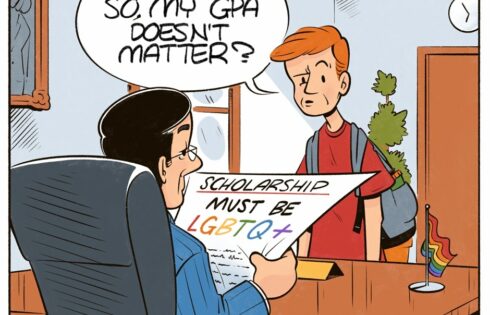One thing we do here at The College Fix is give budding student reporters opportunities to file their first Freedom of Information Act request. We’ve helped facilitate more than a half-dozen requests over the last year with the understanding that public universities are beholden to the taxpayers, and journalists are, to borrow a phrase, the “transparency police.”
That term was plucked from a recent piece in the Columbia Journalism Review: “Six lessons from a five-year FOIA battle,” by Philip Eil.
The gist: FOIAs are not easy, they sometimes cost money, they usually require perseverance on the part of the reporter, you may be in for a legal battle, and when push comes to shove — by the time you get the information you sought — the issue is yesterday’s news.
But we as journalists, in the end, must continue to hold government agencies and public institutions accountable for their actions. As Eil puts it: “We are the transparency police. And if we don’t fight for this stuff, nobody will.” More from his piece:
1. Know your rights. Everyone knows about the Bill of Rights. But people have rights under the Freedom of Information Act, too—and journalists have an obligation to learn them.
Consider a few things I was surprised to learn during my FOIA adventure. One, anyone in the world can file a FOIA request; there is no US Citizenship requirement. Two, all requesters are legally entitled to an estimated completion date. … Three, journalists are entitled to special fee-waiver privileges under FOIA. Four, requesters can file a second FOIA request for the processing notes from a previous FOIA request. In my case, “FOIAing my FOIA” yielded some interesting, if depressing, behind-the-scenes info. …
Additional bullet points include: delving into the FOIA subculture (yes, there’s a hashtag: #FOIA); many journalists don’t report on FOIA’s being stonewalled (tsk tsk); “FOIA is money”; and “Prepare to sue.”
And finally, “final words of inspiration” from Gimme Some Truth: The John Lennon FBI Files, which notes:
The basic issue was that government officials everywhere like secrecy. By keeping the public from learning what they have done, they hope to avoid criticism, hinder the opposition, and maintain power over citizens and their elected representatives. Classified files and official secrets lie at the heart of the modern government bureaucracy and permit the undemocratic use of power to go unrecognized and unchallenged by citizens.
Democracy, however, is not powerless before this practice. In the fight against government secrecy, America has led the world. In 1966 Congress passed the FOIA, which requires that officials make public the information in their files to “any person” who requests it, unless it falls into a small number of exempted categories, including “national security.”
Journalism – the fourth estate.
Like The College Fix on Facebook / Follow us on Twitter




Add to the Discussion